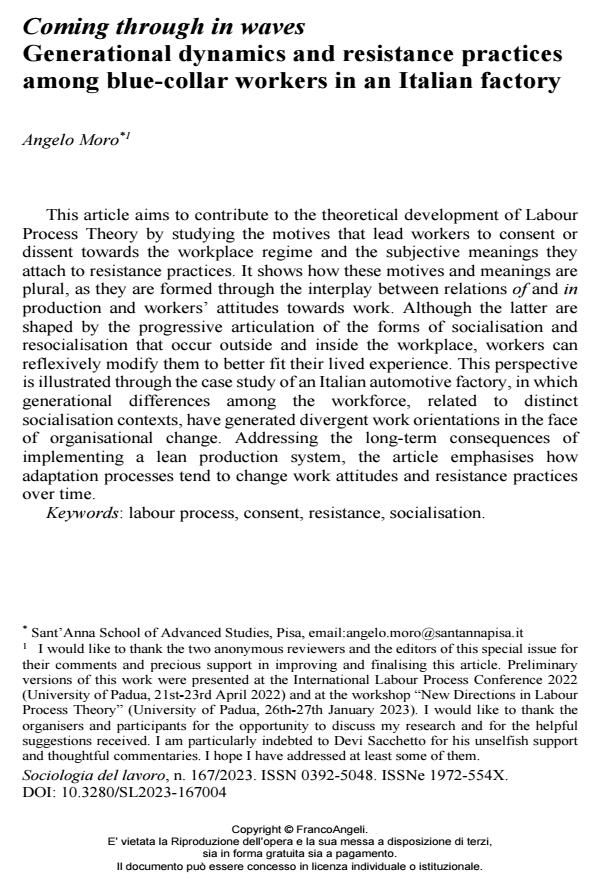Coming through in waves Generational dynamics and resistance practices among blue-collar workers in an Italian factory
Titolo Rivista SOCIOLOGIA DEL LAVORO
Autori/Curatori Angelo Moro
Anno di pubblicazione 2024 Fascicolo 2023/167
Lingua Inglese Numero pagine 24 P. 76-99 Dimensione file 240 KB
DOI 10.3280/SL2023-167004
Il DOI è il codice a barre della proprietà intellettuale: per saperne di più
clicca qui
Qui sotto puoi vedere in anteprima la prima pagina di questo articolo.
Se questo articolo ti interessa, lo puoi acquistare (e scaricare in formato pdf) seguendo le facili indicazioni per acquistare il download credit. Acquista Download Credits per scaricare questo Articolo in formato PDF

FrancoAngeli è membro della Publishers International Linking Association, Inc (PILA), associazione indipendente e non profit per facilitare (attraverso i servizi tecnologici implementati da CrossRef.org) l’accesso degli studiosi ai contenuti digitali nelle pubblicazioni professionali e scientifiche.
This article aims to contribute to the theoretical development of Labour Process Theory by studying the motives that lead workers to consent or dissent towards the workplace regime and the subjective meanings they attach to resistance practices. It shows how these motives and meanings are plural, as they are formed through the interplay between relations of and in production and workers’ attitudes towards work. Although the latter are shaped by the progressive articulation of the forms of socialisation and resocialisation that occur outside and inside the workplace, workers can reflexively modify them to better fit their lived experience. This perspective is illustrated through the case study of an Italian automotive factory, in which generational differences among the workforce, related to distinct socialisation contexts, have generated divergent work orientations in the face of organisational change. Addressing the long-term consequences of implementing a lean production system, the article emphasises how adaptation processes tend to change work attitudes and resistance practices over time.
Parole chiave:labour process, consent, resistance, socialisation.
Angelo Moro, Coming through in waves Generational dynamics and resistance practices among blue-collar workers in an Italian factory in "SOCIOLOGIA DEL LAVORO " 167/2023, pp 76-99, DOI: 10.3280/SL2023-167004